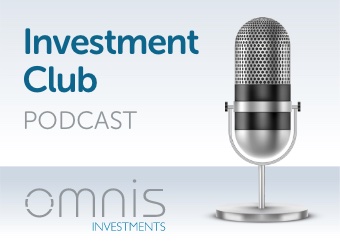How does the recent Spring Budget affect you?
Monday 8 March, 2021
On Wednesday 3 March 2021, in the spring budget the Chancellor set out plans to support employees, businesses and self-employed financially recover from the effects of the coronavirus pandemic.
Below are the key points in the budget announcement:
- The Coronavirus Job Retention Scheme is extended further, until the end of September 2021.
- Confirmation that there will be a fifth Self-employed Income Support Scheme grant and more information on the grant covering February 2021 to April 2021.
- The launch of a new Recovery Loan Scheme that will replace the existing business loan schemes which finish at the end of March 2021.
Below is a summary of the policies that affect personal finances
Taxes and allowances
As previously planned, the income tax threshold for the basic rate will rise to £12,570 in 2021, while for higher-rate taxpayers it will increase to £50,270. After this date, the rates will stay the same until April 2026.
The pensions lifetime allowance will also stay at just over £1 million until April 2026 instead of increasing in line with the Consumer Prices Index. Inheritance tax thresholds and capital gains allowances will also be frozen until this time.
Elsewhere, corporation tax will rise to 25% in 2023, and there will be a Small Profits Rate to ensure only businesses with profits of over £250,000 will be taxed at the 25% rate.
The Chancellor confirmed the 5% reduced rate of VAT will be extended for six months to 30 September followed by interim rate of 12.5% for another six months.
Supporting business owners and the self-employed
The furlough scheme will continue until the end of September, with no change of terms. After July, businesses will be asked for a 10% contribution, rising to 20% in August and September. As the economy reopens in the summer, the government will help businesses whose turnover has fallen by 30% or more the most.
There will be a new Restart Grant in April to help companies reopen and get going again. Non-essential retail businesses will receive grants of up to £6,000 per premises, while hospitality and leisure firms will get grants of up to £18,000. Support for the self-employed will also continue until September and is broadening to include those who filed a tax return by midnight on 2 March.
As part of his plans for an investment-led recovery, the Chancellor announced a new set of schemes called Help to Grow. They will include projects to support people with management training and help small business gain digital skills.
Sustainable investing
The Treasury is launching the world’s first green savings bond through National Savings & Investments (NS&I). It means UK savers will have the opportunity to help the country rebuild in an environmentally friendly way and meet its target of cutting greenhouse gas emissions to net zero by 2050. The money will be earmarked for a variety of projects such as renewable energy and clean transport.
Meanwhile, Leeds will host the UK’s first infrastructure bank, which will support more than £40 billion of investment. It will invest across the UK in public and private projects to finance the green Industrial Revolution, beginning this spring. The Treasury believes the new institution can play a key role in helping to kickstart the country’s economic recovery and reach its goals to fight climate change.
Helping homebuyers
As expected, the Stamp Duty holiday has been extended until 30 June. That means anyone completing on the purchase of a property in England and Northern Ireland worth up to £500,000 will not have to pay Stamp Duty before then. After this, the nil rate band will apply on properties up to a value of £250,000 until the end of September.
The Chancellor has also pledged to help first-time buyers who have a small deposit get on the property ladder with a mortgage guarantee scheme. As part of the initiative, the government will guarantee a chunk of the loan offered by mortgage companies, making it easier for people to be approved for riskier 95% mortgages. The scheme is for properties worth up to £600,000.
Debbie Bell, Financial Services Director in Cheshunt, Hertfordshire said:
‘There were few real surprises in the Chancellor’s budget. Rishi Sunak used the Budget to announce measures to support the economy and groups that have been adversely affected by the pandemic. He also outlined ways to fix the public finances and improve economic recovery. There was positive news for the housing market as the Stamp Duty holiday is extended which should support the housing market going forward.’
In Summary...
Please contact one of the Thomas Oliver financial planning or mortgage broking team on 01707 872000 if you want to know how the budget will affect your finances.






